The best spots for specialty coffee in Shanghai
SHANGHAI - Sitting before me is one of the most photographed cups of coffee on Chinese social media. It is served on a wooden tray with a bottle of flowers; a generous serving of candy floss dangles over a cup of Americano. Delicate tufts of the candy drips into the cup as heat from the beverage melts the spun sugar — amid a chorus of giggles and a barrage of camera clicks — resulting in a sweeten cup of java. The name of this cuppa? Sweet Little Rain (of course).
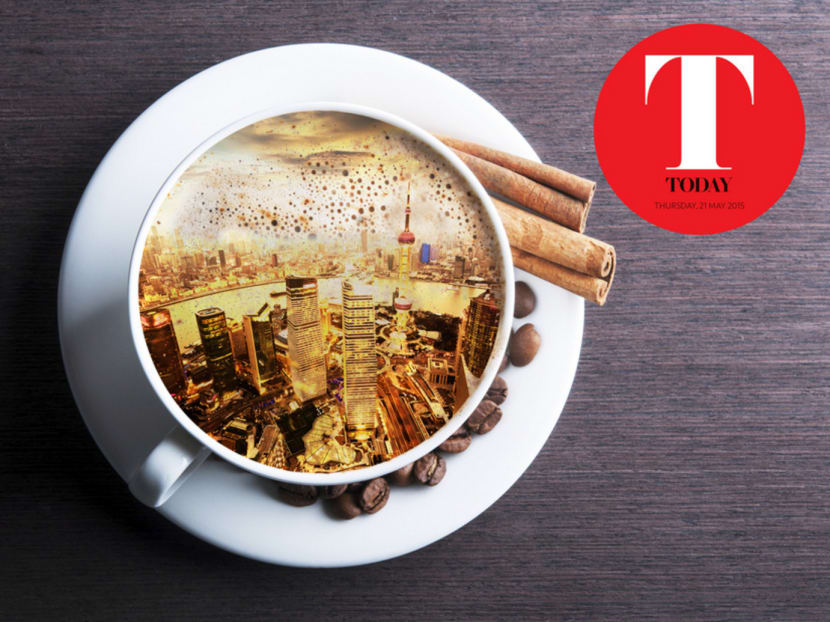
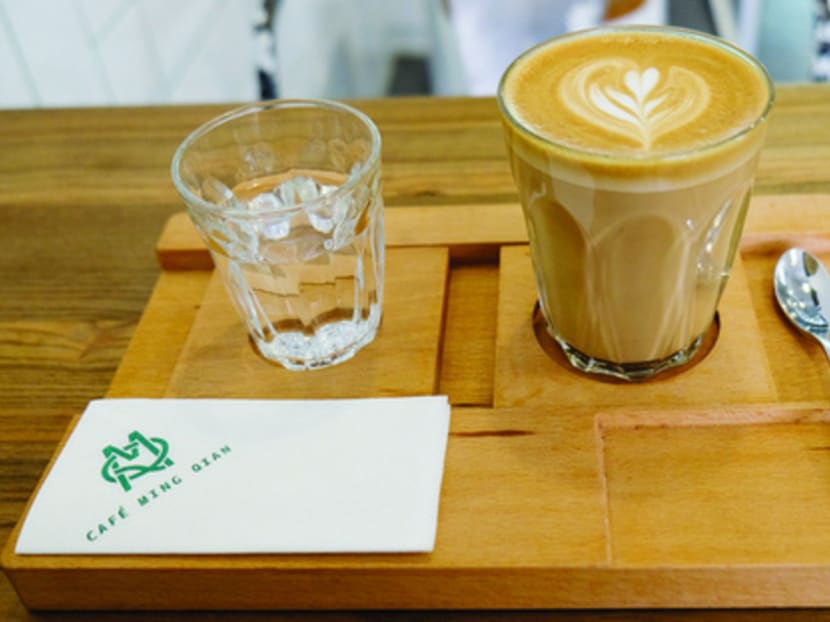
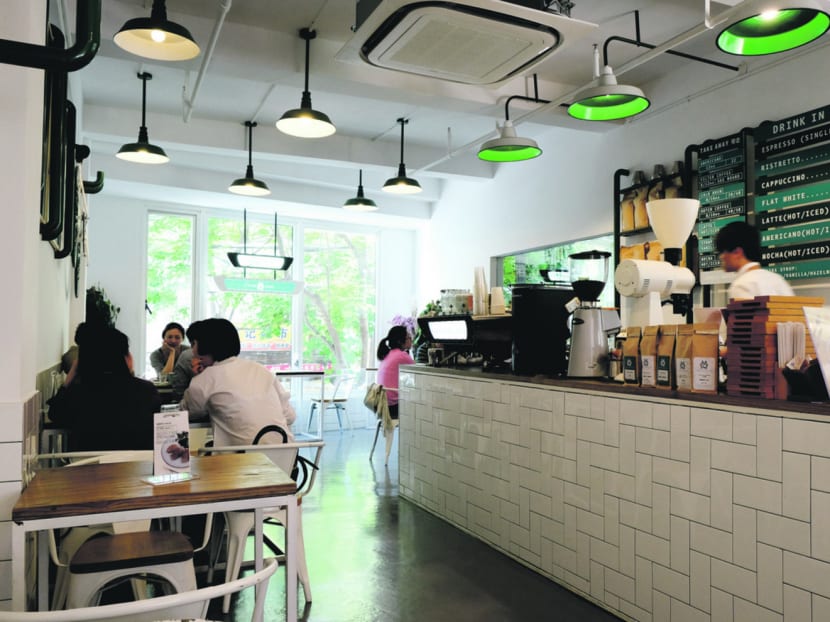
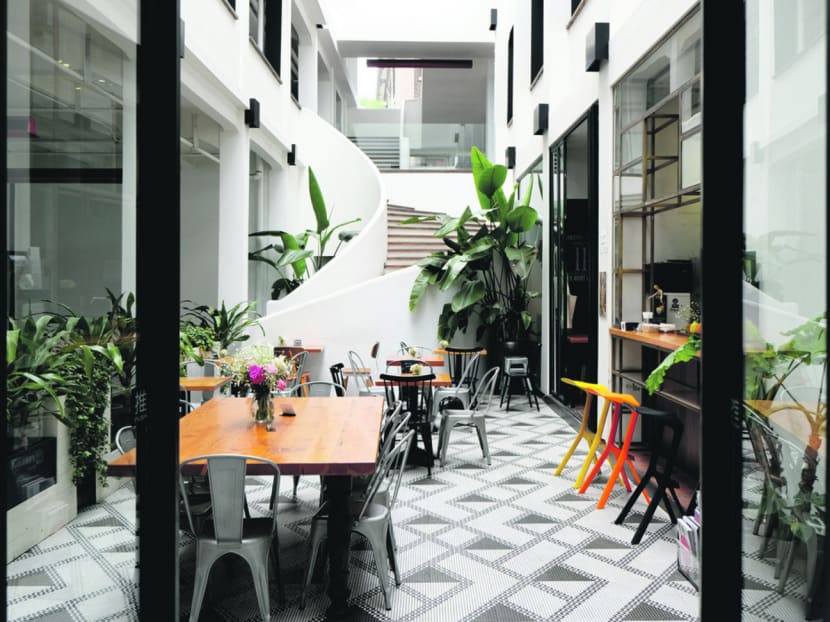
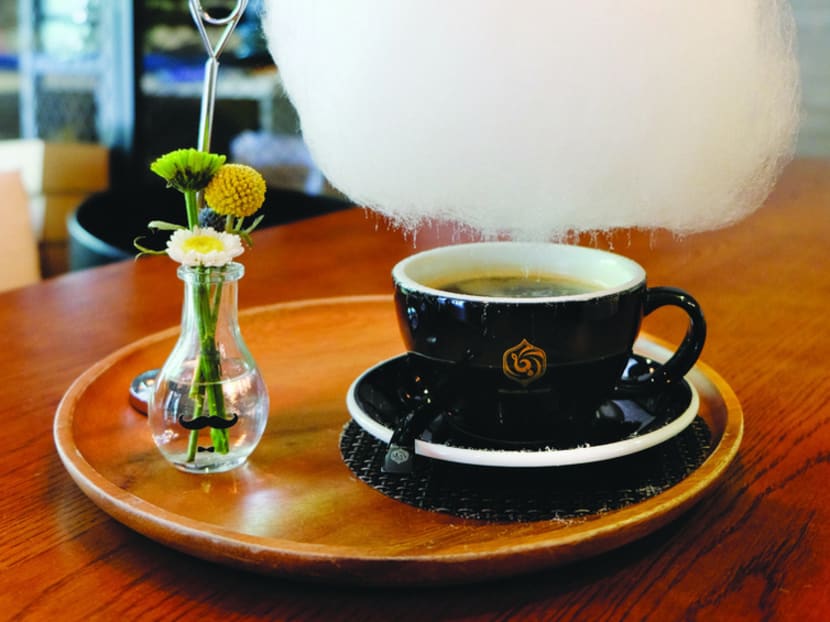
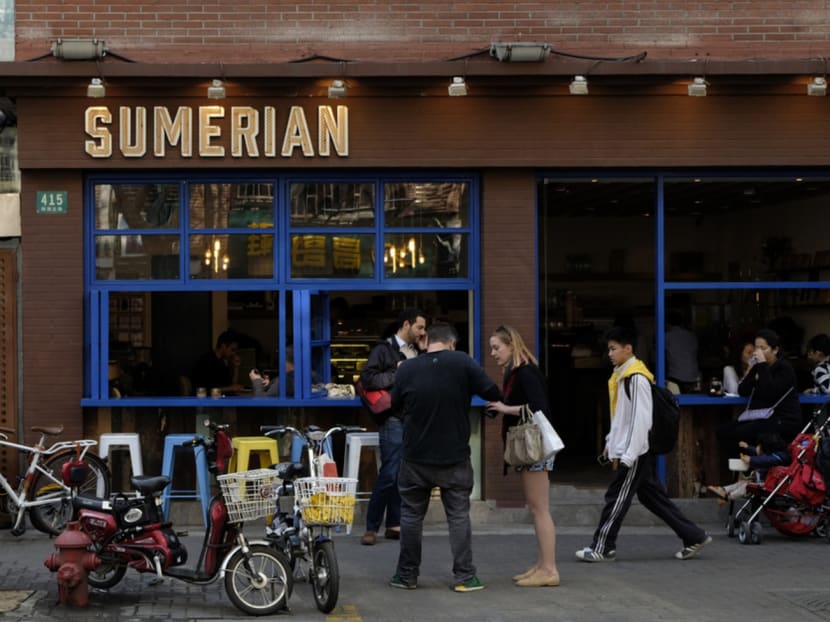
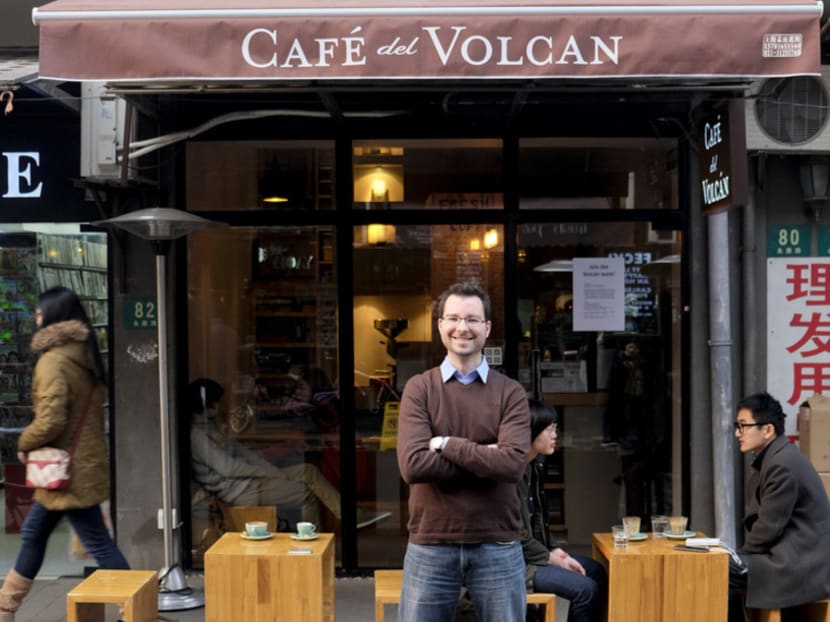
SHANGHAI - Sitting before me is one of the most photographed cups of coffee on Chinese social media. It is served on a wooden tray with a bottle of flowers; a generous serving of candy floss dangles over a cup of Americano. Delicate tufts of the candy drips into the cup as heat from the beverage melts the spun sugar — amid a chorus of giggles and a barrage of camera clicks — resulting in a sweeten cup of java. The name of this cuppa? Sweet Little Rain (of course).
While the coffee is hardly remarkable, Mellower Coffee cafe in Shanghai sells more than 200 cups of this signature drink on weekends. It’s interesting because statistics show that the average Chinese drinks just five cups of coffee a year (the majority still turn to tea for their caffeine fix). But these days, it is not surprising to find a Starbucks outlet just 400m away from another in Shanghai. The city isn’t just a business hub or a place for tourists to sightsee or queue up for Nan Xiang’s popular xiao long bao any more; Shanghai is opening itself up to the coffee boom.
QUALITY STAFF AND COFFEE
In a way, the proliferation of Starbucks in China has led to an interest in specialty coffee there. “Actually, Starbucks is really paving the way for us specialty coffee roasters because the first time most Chinese people drink coffee is from a Starbucks store. That’s when they first discover the flavour and, with that, they develop a desire to better understand coffee and taste better types,” said Nils Weisensee, the German owner of Cafe del Volcan.
Located along Yong Kang Road, Cafe del Volcan is a hole-in-the-wall specialty coffee establishment. You get exceptional brews prepared by highly-trained staff and the cafe has been receiving rave reviews since it opened in August 2012. Business can get so brisk at times that patrons have to wait up to 15 minutes just to get served.
Besides importing coffee beans from Ethiopia, Sumatra, Yunnan and Costa Rica, Weisensee also relies on the excellent beans sourced from a famous plantation in Guatemala called Faldas del Volcan — owned by the family of his business partner that has been handed down for five generations. Like most Germans, Weisensee is a perfectionist. The former Associated Press business correspondent regularly conducts numerous team tastings to help his employees develop a comprehensive understanding of the product and the different ways it can be prepared. Weisensee has also made it a point to hire full-timers and he is well prepared to pay his staff more than competitors.
This dedication shows in the coffee — it’s rich, slightly acidic and packs a punch. Weisensee is in the midst of taking things a notch up by getting a bigger place to roast his own beans but it’s hard to find that perfect location. “I don’t want to have it in a mall. I want ... a destination where people would go because they want to be in that particular space to enjoy coffee.”
WHOLESALE SUCCESS
Over at Sumerian on Shaanxi North Road, owner Dave Seminsky has adopted a different approach to his specialty coffee business. The San Francisco native’s focus is on wholesale. Seminsky’s interest in coffee roasting started out as nothing more than a hobby but after realising the business potential of specialty coffee, he left his job with Apple to set up Sumerian, which now supplies their locally roasted beans to an impressive clientele that includes major brands such as BMW, Apple and various five-star hotels in the city. Seminsky recently opened another store in the French Concession area, a sign, perhaps, that his strategy to enter the business-to-business sector is paying dividends.
“A lot of hotels want to differentiate themselves by creating stories around a product. They feel that having coffee that’s roasted locally by a small boutique company coffee such as ours makes for a better story,” explained Seminsky.
In Shanghai, the average monthly wage of a young professional is about RMB6,000 (S$1,293), so enjoying a cuppa at Sumerian can be considered a luxury — the cafe latte or cappuccino costs RMB38. But the hordes of customers that stream in, many of whom are locals, tell a different story.
“It’s about all changing people’s routines — getting those who are consistently going to Starbucks to come to you,” Seminsky added. “I never want to have a second-tier product. The milk we use here is imported from South Korea and yes, it’s incredibly expensive at about RMB8 to RMB10 per cup (but) we’ve always believed that if you creat an experience, profits will naturally follow.”
Over at MQ Coffee, owner Cai Zhongshun is well known for his obsession with coffee-making gadgetry and coffee aficionados can find all sorts of equipment displayed around the premises. MQ is the only cafe in China to utilise the ultra-high-end Slayer espresso machine that costs more than S$20,000.
TALENT-SPOTTING
Another cafe making waves in Shanghai is Seesaw Cafe, which has been lauded for their efforts in reaching out to consumers and creating a sustainable supply of baristas through their training academy (hiring good baristas is a problem in China). Seesaw Cafe’s academy space is used to roast coffee as well as host monthly coffee socials and barista classes.
Weisensee said this lack of good baristas is because most Chinese parents disapprove of their children entering the coffee industry. It costs a lot to be trained as a barista; and it doesn’t help that a lot of cafes don’t pay their staff well.
“For many young Chinese people, they are only willing to make that investment if they feel that being a barista is a viable profession that can pay the bills. It doesn’t make sense (if they’re) paid RMB15 an hour,” Weisensee added.
A BREWING MARKET
Of course, us tourists may soon have to battle it out with the locals to get that cuppa. According to the China Coffee Association Beijing, the country is home to the world’s fastest-growing market and consumption levels are increasing 15 per cent a year, compared to the global average of 2 per cent.
But while there are numerous cafes in Shanghai, discerning drinkers agree that few actually serve an exceptional cup of specialty coffee — a paltry number for a city that’s more than eight times bigger than Singapore.
“I’d say that the specialty coffee market is still very much in its infancy but it’s growing very quickly. When we first opened, it was about 80 per cent foreigners and 20 per cent Chinese. Now it’s 50-50,” Weisensee said. “In the beginning, most of our local customers were young professionals like photographers, artists, writers and designers. Nowadays, we even get high school students who spend their very limited allowance on a RMB32 cup of coffee, and elderly Chinese who buy beans to make their own brew at home. The curiosity for the product is just mind-blowing.”
***
WHAT IS SPECIALTY COFFEE?
Singaporean coffee purveyor Marcus Leong, who has played a part in setting up the likes of coffee crafters, Loysel’s Toy on Kampong Bugis, said that the term “specialty” refers to a specific grade of coffee beans that receives a score of 80 and above (on a scale of 100) by organisations such as the Specialty Coffee Association of America, or Specialty Coffee Association of Europe. Expert coffee graders judge based on factors such as taste and mouth-feel.
The score only applies to the quality of the raw beans, and Leong says that consumers should not confuse “specialty” with other words commonly used by cafes, such as “gourmet” and “artisanal”, which are really just marketing terms. Also, just because a cafe stocks specialty beans doesn’t mean that customers are guaranteed a good cup of coffee — much depends on how the barista prepares the beverage.





